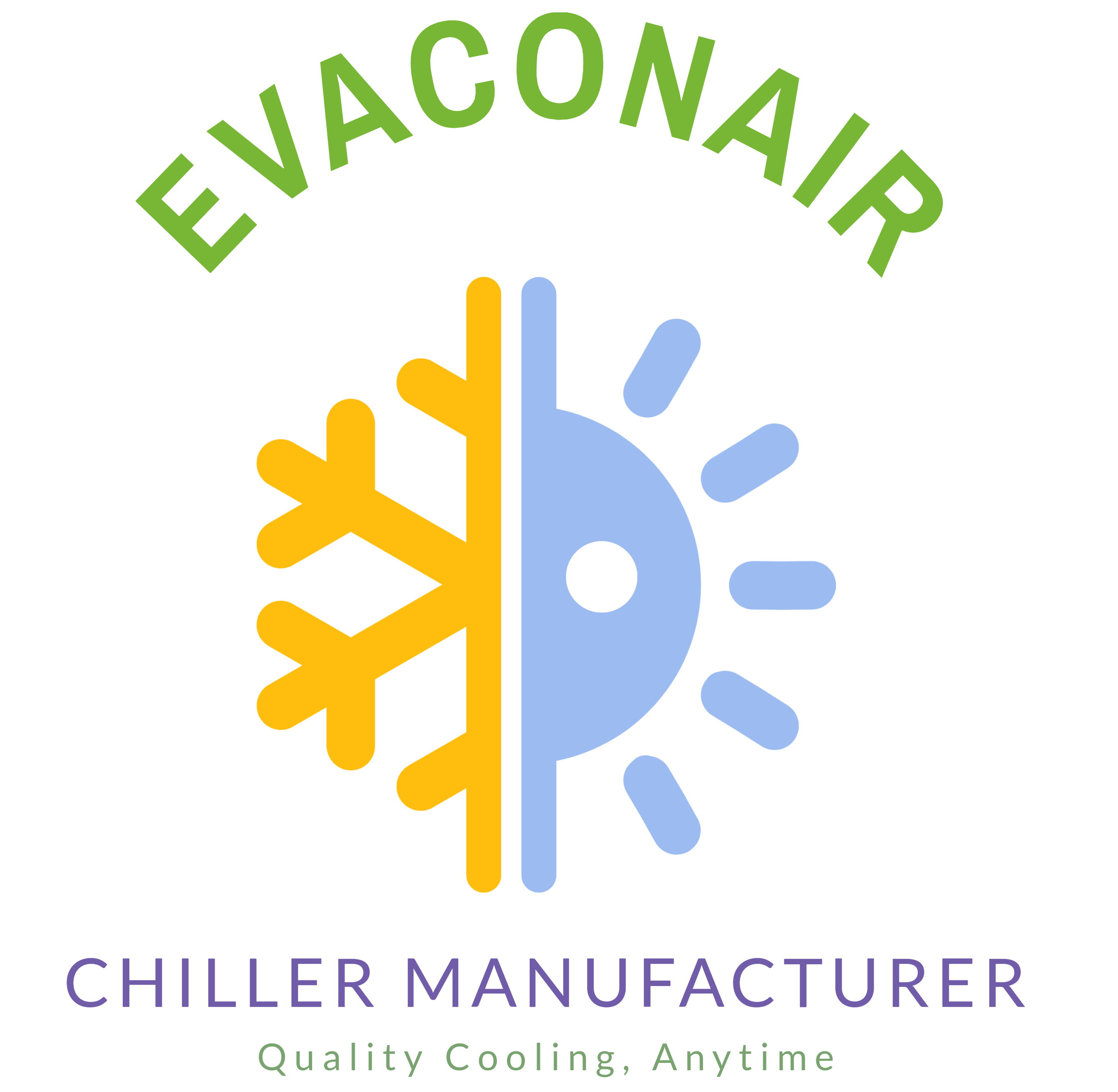Blog
What is Chiller Plant Safety?
Chiller plant safety refers to the practices, procedures, and systems put in place to ensure the safe operation, maintenance, and management of a chiller plant. Ensuring safety in a chiller plant is crucial to protect personnel, equipment, and the environment from potential hazards associated with the operation of chillers, such as refrigerant leaks, electrical risks, and mechanical failures.
Key Aspects of Chiller Plant Safety
1. Regular Maintenance and Inspection
- Scheduled Maintenance: Regular maintenance of chiller components like the compressor, evaporator, and condenser is essential to prevent unexpected breakdowns. Proper maintenance includes checking refrigerant levels, inspecting for leaks, and ensuring that all parts are in good working condition. Maintenance should also cover auxiliary equipment such as Hot Air Dryers and Vacuum Hopper Loaders.
- Inspection of Safety Devices: All safety devices, including pressure relief valves, temperature sensors, and flow switches, must be inspected regularly to ensure they function correctly. These devices are crucial for preventing accidents like overpressure conditions in the system.
2. Proper Handling of Refrigerants
- Refrigerant Management: Refrigerants used in chiller plants, such as those in Air Cooled Screw Chillers or Water Cooled Water Chillers, can be hazardous. Proper handling procedures must be followed to avoid leaks and exposure. Training for technicians on safe refrigerant handling is essential.
- Leak Detection Systems: Install and maintain leak detection systems to quickly identify refrigerant leaks. This is critical for preventing environmental damage and ensuring the safety of personnel.
3. Electrical Safety
- Proper Grounding and Wiring: Ensure that all electrical components, including those in Air-Cooled Water Chillers and Water Cooled Screw Chillers, are properly grounded and installed according to electrical safety standards. This prevents electrical shocks, fires, and other hazards.
- Lockout/Tagout Procedures: Implement lockout/tagout procedures to ensure that the chiller is de-energized before any maintenance work begins. This prevents accidental startup and ensures technician safety.
4. Training and Certification
- Employee Training: All personnel involved in operating or maintaining the chiller plant should receive comprehensive training. This includes understanding the operation of chiller systems, emergency procedures, and the safe handling of equipment like Gravimetric Blenders and Dehumidifiers.
- Certification: Operators and technicians should hold certifications relevant to chiller operation, including those for handling refrigerants and performing electrical work.
5. Emergency Preparedness
- Emergency Shutdown Procedures: Establish and practice emergency shutdown procedures that can be quickly executed in the event of a system failure, refrigerant leak, or other emergency situations.
- Fire Safety: Equip the chiller plant with appropriate fire detection and suppression systems. Ensure that fire extinguishers are readily available and that all personnel are trained in their use.
6. Environmental Considerations
- Refrigerant Disposal: Follow proper procedures for the disposal of refrigerants to minimize environmental impact. Collaborate with certified Chiller Dealers In Ahmedabad for safe disposal and recycling of refrigerants.
- Noise and Vibration Control: Implement measures to control noise and vibration from the chiller operation, which can pose health risks to workers and cause structural damage to the facility.
Conclusion
Chiller plant safety is crucial for ensuring the efficient and safe operation of the chiller system, protecting both personnel and equipment. By adhering to regular maintenance schedules, handling refrigerants safely, implementing electrical safety protocols, and ensuring thorough training, the risks associated with chiller plant operations can be minimized. Whether you’re managing an Air-Cooled Water Chiller in Ahmedabad or a Water Cooled Screw Chiller in Ahmedabad, these safety measures are essential. For more detailed information on chiller systems and their safe operation, visit our products page.
